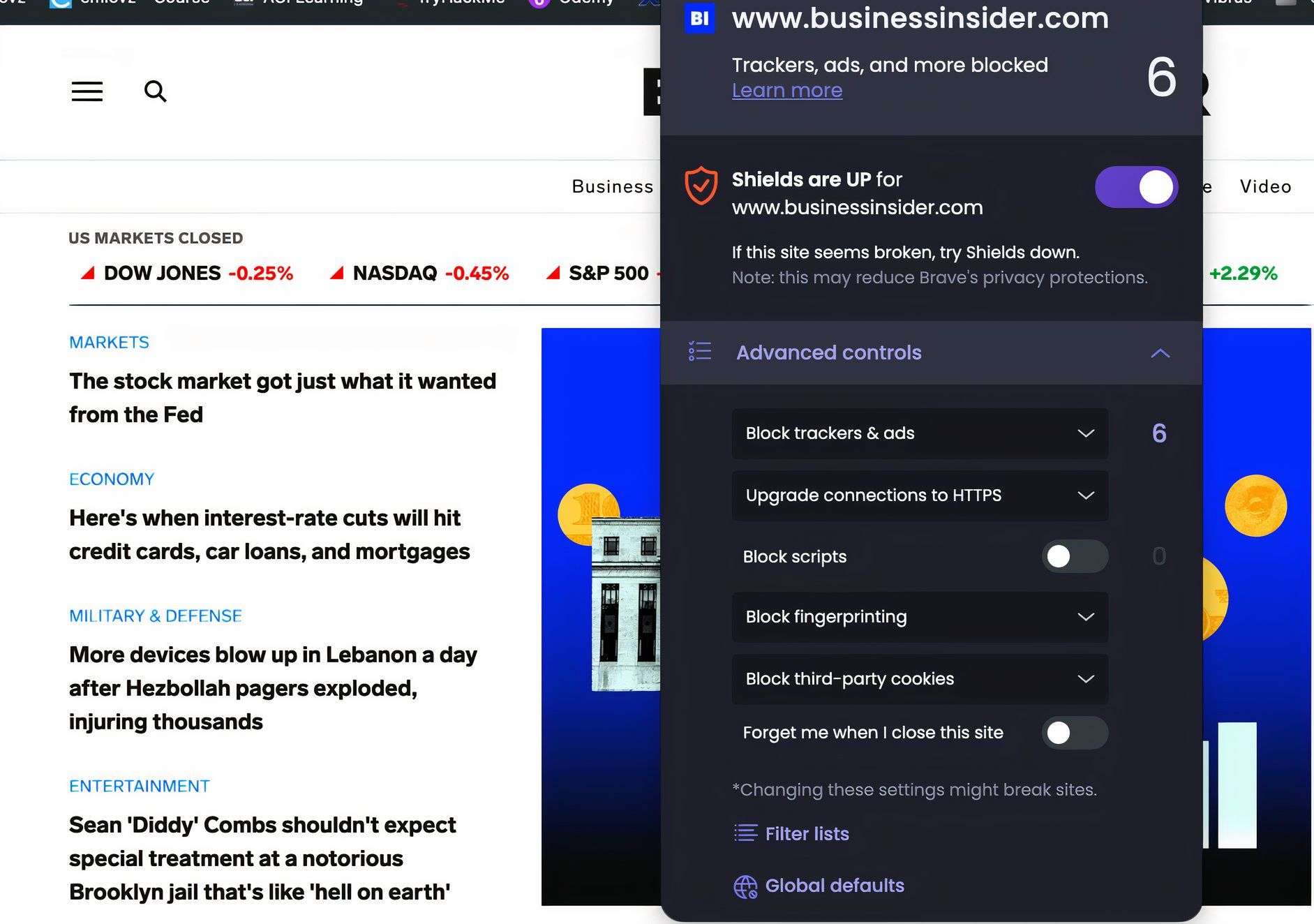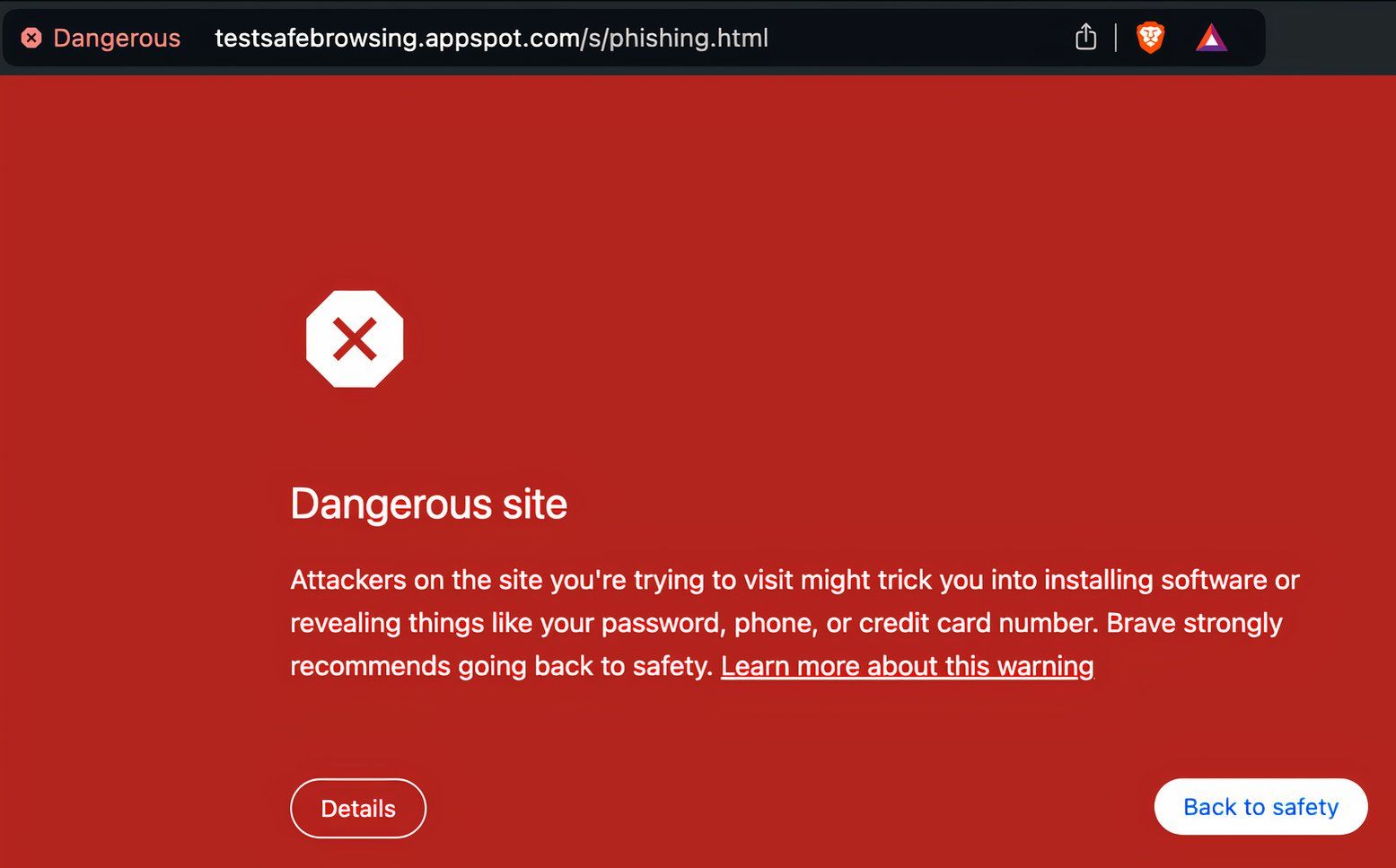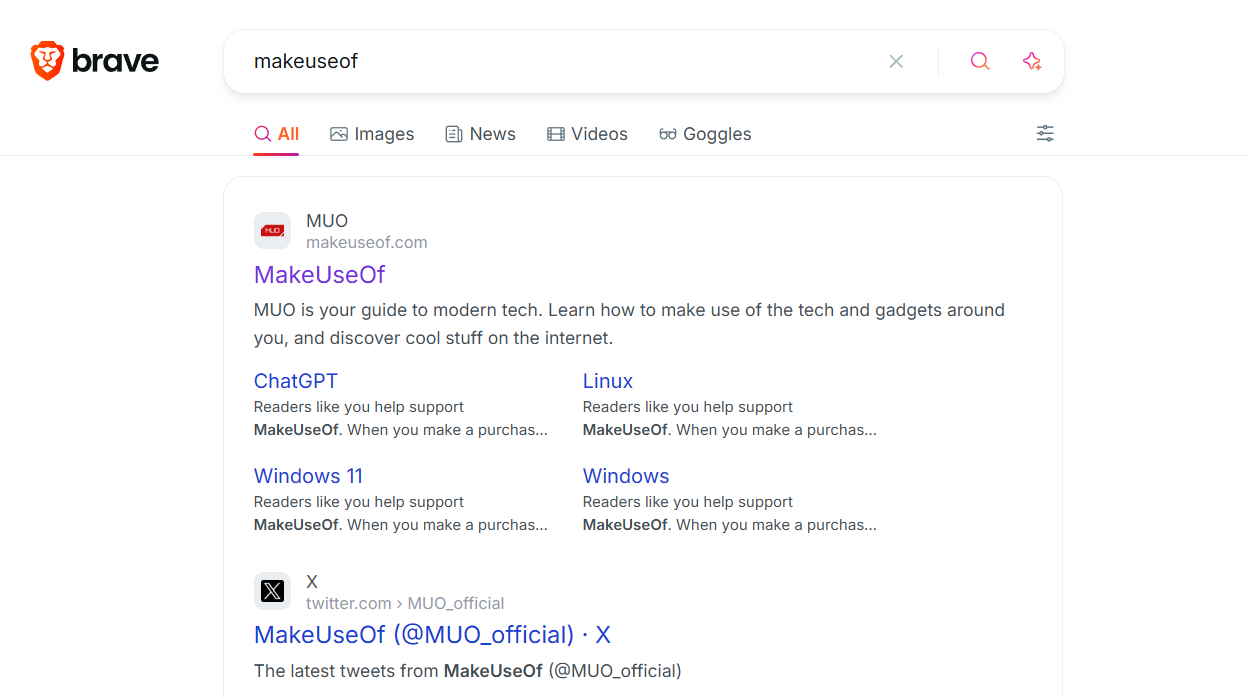Key Takeaways
- Brave is a secure and private browser, blocking ads, trackers, and cookies that collect user data effectively.
- Brave’s unique features include a built-in crypto wallet, protection from phishing sites, and unbiased search results.
- The browser offers a VPN and firewall for additional security, with a strict no-share policy to protect user data.
Data is the new oil, and companies are drilling away, trying to suck up as much user data as they can to package and sell to data brokers. Meanwhile, cybercrime is an ever-growing business that preys on unwitting users.
Brave, one of the most secure and private web browsers on the market, has identified these issues as the existential threats they are and is fighting back with these eight features.
1 Brave Shields
Users mostly have Brave Shields to thank for keeping their data private and secure. Shields comes with a number of features that are worth dissecting.
Block Party
By default, Brave Shields blocks third-party ads and trackers. Normally, you’d have to download a third-party adblocker, but Brave has one already built in. The problem with adblockers is that blocking ads occasionally means breaking websites. Brave addresses this by replacing intrusive code designed to track you with new code designed to keep your data private without compromising the quality of the webpage.
Companies know that browsers like Brave exist, so they’re getting clever about hiding trackers in their code. Brave uses CNAME uncloaking techniques to identify these trackers before they identify you.
Cookie Monster
If you’ve ever wondered how ads seem to follow you across the web, blame cookies. Cookies capture your behavior online and are then used to supply you with highly targeted ads. Brave blocks cross-site cookies, so your every move is no longer being recorded. Some sites don’t function properly if cookies are disabled, which is why Brave supplies cookies with temporary information that does not compromise the user’s privacy, thus enabling the site to function.
Gone Phishing
While Brave prides itself on protecting data privacy, Google does not, so it might seem odd that Brave uses the Google Safe Browsing feature. Brave uses this feature as a benefit of being built on Chromium, the same open-source browser software used to create Google Chrome.
This feature blocks users from accessing phishing sites or websites known to be malicious and prevents users from downloading known malware and malicious browser extensions.
2 Brave Search
Web browsers like Google Chrome track every search and action you take in your browser. Brave Search doesn’t collect queries, making it impossible for it to share, sell, or store user data.
Another nice feature is that the results shown on Brave’s results page will yield less biased results. This is because Brave indexes the web itself and, as such, doesn’t prioritize results based on SEO practices or prior search or browsing history.
You don’t even have to download the browser to try Brave Search. It’s available on all browsers.
3 Brave VPN & Firewall
Brave comes with a built-in VPN and firewall. These features are available for a seven-day trial, after which you’ll pay $9.99 a month to use them. That said, a native VPN and firewall will work more seamlessly than third-party providers. The VPN and firewall can be enabled on up to five different devices. If you’re already paying for these products, it might make sense to make the switch.
A VPN creates an encrypted tunnel that scrambles your data as it’s sent over the web. VPNs are mostly used to access geo-restricted content, protect data, make surfing the web more private, and access private corporate networks. Pairing a VPN with a firewall is handy because it blocks unwanted data from entering or leaving your network. This is useful for blocking trackers and malware.
4 A No-Share Policy
All the privacy and security features in the world are no good if the company whose product you’re using decides to sell your information.
Brave has committed to users that it will not collect, share, or sell user data. Brave also adheres to European privacy policies and applies them to all users instead of just those who access content in Europe. It complies with the EU’s General Data Protection Regulation and the California Consumer Privacy Act, two pieces of legislation widely known to provide ironclad user data protection.
If you care about your security and privacy while surfing the web, download Brave.




